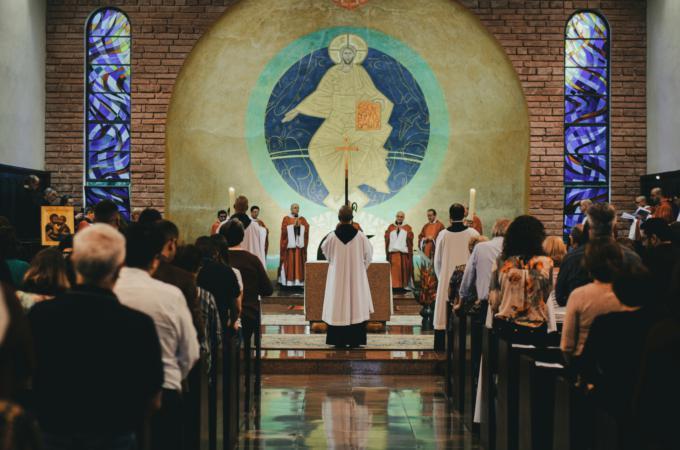Priest and Mass in mortal sin
Q. How can a priest in the state of mortal sin offer the holy sacrifice of the Mass and receive Communion? (Northampton, Pennsylvania)
A. Generally speaking, a priest would not be permitted to celebrate Mass while in a state of mortal sin. A priest is governed by the same rule as every other Catholic -- namely, that the state of grace is required for the worthy reception of holy Communion.
I should note here that the validity of the Mass is not affected by the state of the celebrant's soul; the Church has always taught that the sacraments act "ex opere operato," that is, by the very fact of the action's being performed.
If a celebrant were in the state of mortal sin, the consecration would still be valid, and those who took Communion would still be receiving the true body and blood of Christ. Section 1128 of the Catechism of the Catholic Church notes that "from the moment that a sacrament is celebrated in accordance with the intention of the Church, the power of Christ and his Spirit acts in it and through it, independently of the personal holiness of the minister."
So generally, a priest in the state of serious sin should not celebrate Mass, and to do so would be a sacrilege. The exception to the rule would be if the priest were forced by the circumstances to offer Mass despite the state of his soul, and the Code of Canon Law addresses this specifically:
"A person who is conscious of grave sin is not to celebrate Mass or receive the body of the Lord without previous sacramental confession unless there is a grave reason and there is no opportunity to confess; in this case the person is to remember the obligation to make an act of perfect contrition which includes the resolution of confessing as soon as possible" (Canon 916).
A priest in mortal sin scheduled to offer Mass for a waiting community, with no opportunity to confess and no other priest available, could go ahead and celebrate the Eucharist -- but then he should go to confession at the first opportunity.
Q. When is violating one's body through self-flagellation permitted to get "more points" for going to heaven? In a book I'm reading about Padre Pio, there is a mention of friars whipping themselves to the point of bleeding. Is this what God expects of us, or are there fanatic people who go to the extreme to be like Christ? (Beaverton, Oregon)
A. No, I don't think that self-flagellation is what "God expects of us." Corporal mortification has been part of the Christian life for centuries, but in contemporary society it is more often exemplified by such practices as dietary discipline. The portrayal in "The Da Vinci Code" of monks undergoing bloody self-beatings is clearly an exaggeration.
The website of the Catholic group Opus Dei says that some of its members do self-flagellate for one or two minutes a week but use a woven cotton string that causes some discomfort but does not draw blood. The purpose of the practice is to imitate Christ by sharing in his suffering. (St. Dominic prayed with arms outstretched for lengthy periods as Jesus did on the cross.)
In a 2010 article, reacting to a report that St. John Paul II kept a disciplinary belt in his closet, Father (now Bishop) Robert E. Barron explained that the instrument was likely a rope with a few small knots in it and that the actual physical pain was probably minimal.
- Father Kenneth Doyle is a columnist for Catholic News Service



















